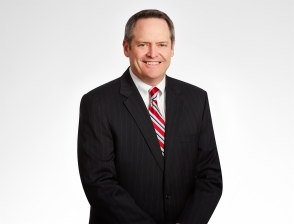Yesterday, the U.S. Department of Labor (“DOL”) announced its long awaited proposal to increase the minimum salary threshold requirements for the “white collar” Executive, Administrative and Professional (“EAP”) and Highly-Compensated Employee (“HCE”) overtime exemptions under the federal Fair Labor Standards Act (“FLSA”). The proposed rule does not make any changes to the exemptions’ duties tests.
The FLSA requires covered employers to pay all “non-exempt” employees who work over 40 hours in a workweek one and one-half times their regular rate of pay.
The impact of the proposed rule is significant – if implemented, an estimated 3.6 million additional workers will be entitled to overtime pay, resulting in an estimated “year 1 income transfer of $1.2 billion from employers to employees.”
The DOL’s proposed changes include:
- An increase to the current salary threshold of $684 per week ($35,568 per year) to $1,059 per week ($55,068 per year) for overtime exempt EAP employees. The change would reflect a 55% increase from the current level that was set in 2019.
- An increase to the total annual compensation requirement for overtime exempt HCEs from $107,432 per year to $143,988 per year. The change would reflect a 34% increase from the current level that was set in 2019.
- Automatic updates to the salary thresholds every three years from their effective dates to keep pace with changes in worker salaries.
- Uniform application of the new salary threshold of $1,059 per week to all U.S. territories subject to the federal minimum wage (Puerto Rico, Commonwealth of the Northern Mariana Islands, Guam, and the U.S. Virgin Islands). These territories were previously exempted from the 2019 changes.
Once the proposed rule is officially published in the Federal Register, the public will have 60 days to provide written comments. The DOL will then consider those comments and issue a “Final Rule.” With the history of prior attempts to change the salary thresholds as our guide, we anticipate the DOL will receive thousands of comments, take several months to consider them due to political pressures, and may make some modest modifications to its proposed rule in the Final Rule. Then there will likely be legal challenges.
So what do employers do next?
Employers can utilize the public comment period to provide their take on the proposed changes and how they will impact business. The response from the business community will be critical in refining the Final Rule. Employers can also begin preparing for the Final Rule now by reviewing the salary levels of their exempt employees to identify who may be impacted by the proposed changes.
In the coming weeks Michael Best & Friedrich will host a webinar to discuss the proposed changes in greater depth. Our Wage and Hour Team will also be available to discuss specific strategies to mitigate the impact of the forthcoming changes.
Related People

Preview Attorney's BiographyDevin is an Associate in the firm’s Labor & Employment Relations practice, focusing on risk avoidance and employer defense.
He frequently represents employers in administrative proceedings and state and federal court litigation involving wage and class actions, discrimination allegations, FMLA actions, OSHA disputes, and non-compete actions. Devin has experience representing clients before agencies including the Wisconsin Equal Rights Division, Illinois Human Rights Commission, Equal ...

Preview Attorney's BiographyBeth defends businesses in employment litigation matters involving discrimination, harassment, wrongful termination, and retaliation under Title VII, the Americans with Disabilities Act (ADA), the Age Discrimination in Employment Act (ADEA), the Family Medical Leave Act (FMLA), the Wisconsin Fair Employment Act (WFEA), National Labor Relations Act (NLRA), Wisconsin Worker’s Compensation Act, and other state and federal laws.

Preview Attorney's BiographyMitch serves as a trusted advisor to businesses on all aspects of management labor and employment law. Clients value his deep knowledge of employment and labor laws, with an emphasis on wage and hour law. Clients regularly seek his counsel regarding compliance with the many and continually changing labor and employment laws, as well as to address challenging or risky personnel situations.